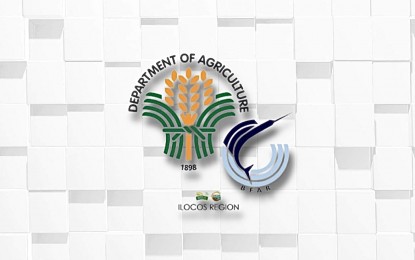
MALASIQUI, Pangasinan – The municipal agriculturist of Anda, Pangasinan has denied that a fish kill in the town has led to a drop in the prices of milkfish, which made the rounds of social media.
The local government, through Municipal Agriculturist Elizabeth Tomas, in a statement posted on the Bureau of Fisheries and Aquatic Resources (BFAR) 1 (Ilocos) Facebook page on Friday, said Anda experienced water stratification brought by the sudden and heavy downpour from June 3 until the morning of June 4, as well as neap tides on June 2-3.
Tomas said fish cage operators observed their fish stocks were gasping for air and showing signs of stress from the sudden temperature change on June 4.
“Realizing the potential effects of the situation, they were advised to harvest their affected stocks as a precautionary measure and to prevent heavy losses. This resulted in the pre-emptive harvesting of stocks at various stages of culture from (the) 125 fish cage units all at the same time on June 4 and 5, thus affecting supply and prices of milkfish in the locality,” she said.
The operators were able to harvest their stocks and dispose of them at the prevailing farm gate price of PHP70 per kg. for those that number 4 to 5 pieces per kg., and PHP80 to PHP100 per kg. for bigger sizes, she added.
BFAR-1, however, said the locality cannot yet provide the volume and value of damage from the incident as it is still focused on assisting the operators in harvesting and disposing of their affected stocks, as well as assuaging fears from other operators brought by the negative social media posts.
"The circulating prices in social media at PHP20 to PHP30 per kilo were those disposed (of) by the operators as leftovers (simot) wherein a boatload (small fishing boat with three to five persons gathering or collecting) of milkfish of approximately 75 kilos and gathered by private individuals seeking to gain from the incident,” it added.
Tomas noted that the fish that were harvested were still alive and safe for consumption when they were disposed of, contrary to the social media posts.
Proper post-harvest handling of milkfish is also strictly observed, monitored, and inspected in landing sites before distribution and transport to markets, she said.
She thus appealed for the responsible release and dissemination of accurate news as these reports also affect the livelihood of aquaculture operators.
BFAR attributed the incident to the effects of climate change, wherein prevailing hot weather is disrupted by sudden heavy rainfall affecting thermal stratification and influencing the supply of dissolved oxygen for fish stocks.
It explained that a fish kill is caused by unfavorable water quality parameters due to unsustainable culture practices, which was not the situation in the Anda incident.
Anda has shifted from pen-based fish culture to floating cage culture since 2019, complying with BFAR’s recommendation through a Regional Law Enforcement Coordinating Committee resolution to ensure sustainable aquaculture operations.
In an interview, BFAR-1 Director Rosario Segundina Gaerlan said they monitor water quality in the bodies of water and advise operators when forced harvest is needed.
The agency, she said, regularly checks water quality parameters in all major aquaculture production areas of the region in coordination with the LGUs to ensure timely warning and guidance when necessary. (PNA)
